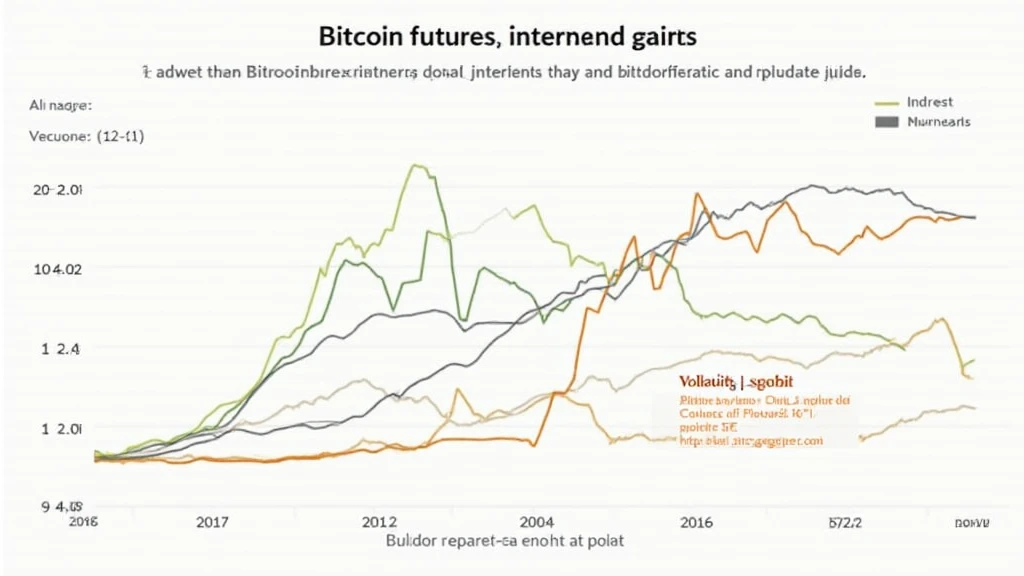Understanding Bitcoin Futures Expiration Dates
With over $10 billion traded daily, the Bitcoin futures market has become a crucial component of the cryptocurrency ecosystem. Questions regarding Bitcoin futures expiration dates often arise among traders and investors. Knowing these dates is essential for strategic trading and risk management.
What are Bitcoin Futures?
Bitcoin futures are contracts that allow traders to speculate on the future price of Bitcoin without owning the underlying asset. These contracts can help investors hedge their positions or profit from Bitcoin price fluctuations. Futures contracts have expiration dates, which are crucial for traders as they dictate when the contract can be settled.
How Bitcoin Futures Work: A Closer Look
- A futures contract is an agreement to buy or sell an asset at a predetermined price at a future date.
- Traders can take either a long position (buying) or a short position (selling).
- Upon expiration, the contract is settled either in cash or with the physical delivery of Bitcoin.
- Expiration dates can significantly affect Bitcoin’s market, creating volatility during the periods leading up to these dates.
Understanding Expiration Dates
Expiration dates occur on a set schedule, often leading to increased trading activity as these dates approach. It’s critical for traders to be aware of when contracts expire.

The Impact of Expiration Dates on Bitcoin Prices
The correlation between Bitcoin futures expiration dates and the asset’s market price can be substantial. As expiration dates approach, the volatility often spikes, affecting trading strategies:
- Many traders close out their positions, leading to significant market movements.
- Fear of missing out (FOMO) or panic selling can occur as traders react to price movements.
- The settlement period provides opportunities for liquidity and price adjustments.
Bitcoin Futures Expiration Calendar
Each year, multiple expiration dates are scheduled for Bitcoin futures contracts. Here’s a brief overview of the typical structure:
- Monthly contracts usually expire on the last Friday of each month.
- Quarterly contracts typically follow a standard quarterly cycle.
- Special contracts may also arise in connection with significant market events.
Traders should keep track of these important dates, which can lead to strategic planning and improved risk management.
Strategic Considerations for Traders
Understanding expiration dates is not just about timing trades; it also involves strategic planning:
- Monitor open interest leading up to expiration dates to gauge market sentiment.
- Consider adjusting stop-loss orders to manage potential price swings.
- Utilize technical analysis to predict market movements as expiration approaches.
Case Studies: Historical Patterns Around Expiration Dates
Historical data provide insight into possible patterns around Bitcoin futures expiration dates:
- In Q1 2023, Bitcoin witnessed a 15% decline in the week leading up to its futures expiration.
- Conversely, in Q2 2022, Bitcoin prices surged by 10% as positive sentiment around forthcoming contracts developed.
By analyzing these patterns, traders can better understand how to approach their investment strategies and mitigate risks.
Regulatory Considerations
As the Bitcoin futures market develops, regulatory bodies are becoming increasingly involved:
- New regulations may impact the trading landscape and require continuous adjustments from traders.
- Regulations related to reporting and trading conduct may also be influenced by expiration date mechanics.
Staying informed about local and global regulatory developments is essential for navigating the futures market.
Emerging Trends and the Future of Bitcoin Futures
Looking ahead, several trends are emerging that could shape the Bitcoin futures landscape:
- Increased institutional participation may lead to more stability and maturity in the market.
- Advancements in technology will provide better trading mechanisms and risk management tools.
Traders must remain adaptable and prepared for a rapidly evolving environment.
Concluding Thoughts
The significance of Bitcoin futures expiration dates cannot be understated. Having a firm grasp of these dates and their potential impacts will empower traders to make well-informed decisions. As we continue to witness growth in the cryptocurrency market, understanding the nuances of Bitcoin futures will be crucial for enhancing trading strategies and risk management practices.
Be sure to stay updated with the latest trends and regulatory changes that might affect your trading experience. Remember, this is not financial advice, so consult with local regulators and professionals before making significant decisions.
For more insights and detailed guidelines, visit cryptocoinnewstoday.
Author: Dr. Alexei Volkov
A blockchain security expert with over 15 published papers and has led audits for several prominent projects in the cryptocurrency realm.





